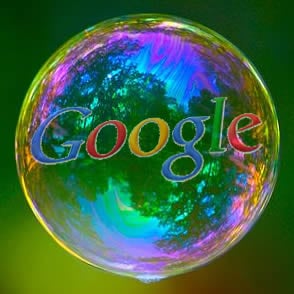 Great presentation by Eli Pariser at PDF 2010 on the Filter Bubble.
Great presentation by Eli Pariser at PDF 2010 on the Filter Bubble.
What’s the filter bubble?
Well, you’re living in it.
In the Internet Age, we’re used to seeing many, many results for any search. “Why Am I Lonely?”: 150,000 hits. “Why Am I Happy?”: 141,000 hits. (Not as bad as I expected.)
A huge, colossal amount of information. But what part of it are you actually going to consume? Most people are not going to click past the first page or two of Google links; the order effectively banishes all but the lucky few into the long dark night of obscurity.
That’s a concern. But there’s more. Google is deciding on a subset of results to return for you based on a few dozen characteristics they can divine about you based on your browser, your location, your operating system, etc. IE 6 on a decrepit PC in Bangladesh will actually see a different set of links than my shiny MacBook in DC does – and even a different total number of results.
When you think about it, this filtering is a bit unsettling. The problem is we don’t know we are being filtered. It’s transparent and invisible; we are not aware our world is being shaped by the options we are presented.
This is all done for the best of reasons; Google is interested in tailoring results such that you are more likely to find the links most useful to you. Facebook does the same thing with its news feed; you are more likely to see status updates and links from friends that you are more likely to have liked in the past.
The problem is that you are being sucked into a world of like-minded people and self-reinforcing opinions and even facts. I’ve written on this before, but the filter bubble is more insidious: you’re not aware that you’re choosing it in the first place.
Now I just hope that the filter bubble thinks that you would like to see this post.